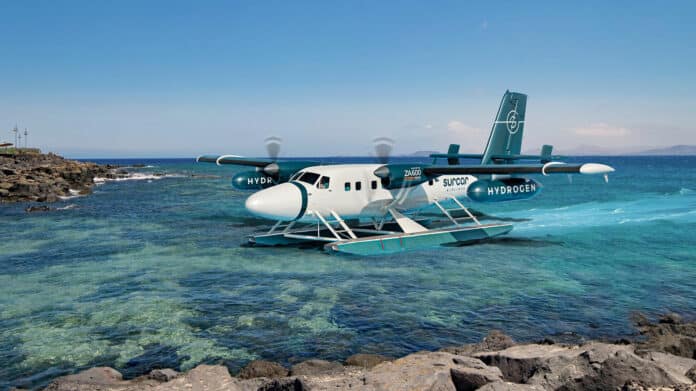ZeroAvia has signed an agreement to provide its ZA600 hydrogen-electric engines to new operator Surcar Airlines as it looks to bring green flights to the Canary Islands.
Surcar Airlines is aiming to launch zero-emission flights in the Canary Islands with Twin Otter seaplanes retrofitted with the ZA600 powertrain. By pioneering captivating, green sightseeing flights, the company aims to inspire and drive other operators towards adopting sustainable practices, accelerating the transition to a cleaner future for the entire industry.
It will begin operations with conventionally powered aircraft. The next step will be switching to hydrogen-electric engines to remove all in-flight emissions, which will substantially reduce climate and air quality impacts.
In December 2021, ZeroAvia signed a memorandum of understanding with De Havilland of Canada, the type certificate holder of the Twin Otter. ZeroAvia is now on track for certification over the next two to three years of the ZA600, 600kW engine for a variety of nine- to 19-seat aircraft. The ZA600 promises a 300 miles (482 km) range, which makes it suitable for island-hopping operations.
ZeroAvia recently completed a program of 10 test flights of a prototype of its ZA600 for aboard a Dornier 228 aircraft at its UK base. The hydrogen-electric engines use hydrogen in fuel cells to generate electricity, which is then used to power electric motors to turn the aircraft’s propellers. The only emission is water.
According to ZeroAvia, its zero-emission, hydrogen-electric engines will be able to support flights up to 300 miles with nine- to 19-seat aircraft by 2025 and up to 700-mile range in 40–80 seat aircraft by 2027.
The company has already secured experimental certificates for its three-prototype aircraft from the CAA and FAA, passed significant flight test milestones, and secured pre-orders for nearly 2,000 engines from a number of the major global airlines.
